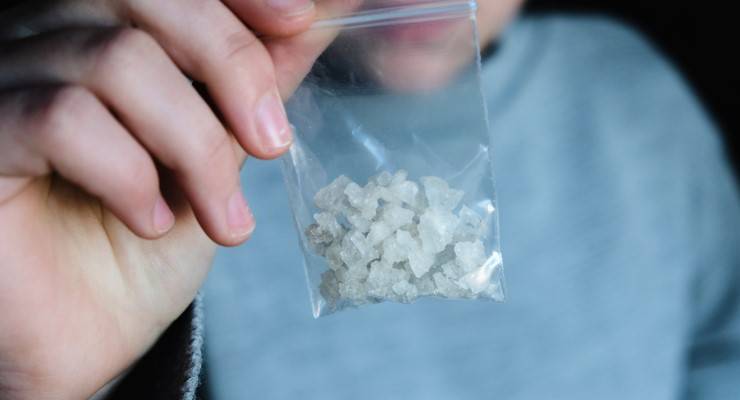
The brief(est)
Here’s a question which doesn’t seem remotely interesting: when did the government get its first briefing about COVID-19 from chief medical officer Brendan Murphy?
It’s a dull question, a drab piece of diarising which you would think would be the business of mere seconds for the Prime Minister and Cabinet secretary to check, and would have an unremarkable and straightforward answer in the form of a date.
Or, perhaps, it would be an impenetrable secret made all the more tantalising by its very mystery!
That second option was the one which secretary Phil Gaetjens went with during his time before the Senate Select Committee, refusing on multiple occasions to answer the question from Labor senator Katy Gallagher. And, of course, the question is why.
After all, there seems to be a general consensus that state and federal governments did an impressively solid job of dealing with the pandemic, so why be cagey and mutter “there are conventions that apply” instead of giving a date?
It’s quite possible that Gaetjens is now so shellshocked from the fallout of questions like “Hey, the country’s on fire, is the PM in Hawaii or something?” that he now just stonewalls every single inquiry on principle.
Or maybe he’s worried that the virus has become sentient and doesn’t want it to know when we started plotting our revenge.
And look, Phil, if you’re going to avoid perfectly reasonable questions requiring the bare minimum of public accountability then at least put some effort into it and answer via a series of clues, each more fiendishly cryptic than the last.
Pew pew pew (revisited)
Chances are you don’t spend too much time thinking about RAAF Woomera Range Complex, the high-security military site which was once home to Australia’s only rocket launches and was a radar centre for the moon landing, and which seldom got talked about after that.
It’s a sleepy little place in the middle of South Australia, 450 kilometres north-west of Adelaide, although in this context “little” means “covering an area 51 times larger than the ACT” and “sleepy” means “continually seeing experimental military testing”.
Also, you’re currently paying for a billion-dollar upgrade to the facility, and journalist Michelle Fahy has been asking some very solid questions about why that might be.
That’s not least because Australia doesn’t get first dibs on using the facility all that often: the United States has the run of the joint whenever they want since it’s one of the few test ranges large enough for what is unsettlingly called “over-the-horizon weapons testing”.
It’s been a major testing ground for Lockheed Martin’s trillion-dollar-and-counting F-35 Joint Strike Fighter, the infamous next-gen plane designed to be a game-changer in the theatre of war via its deployment of unpredictable technical problems ranging from software glitches to sometimes catching on fire.
So the assumption is that we’re all forking out to provide a nicer place for the US to test their faulty stuff, which seems a little rich — not least because the US has historically been a bit funny about letting the Australian Defence Force use the technology it develops here.
Fun fact: regular readers of this column might remember that the new chair of the Woomera Prohibited Area Advisory Board is former Howard-era minister Amanda Vanstone. Who, it turns out, is also on the board of Lockheed Martin Australia. What delightful synergy!
Blow for blow
There’s been a lot of talk about who has been the biggest loser from the coronavirus lockdowns: tourism operators, publicans, artists, the entire university sector, the unemployed, people who’d leveraged everything into turning Hobart into a city of Airbnbs, and so on.
And it turns out that it’s none of them — it’s our humble, hardworking drug cartels.
It turns out that smuggling drugs into Australia is especially difficult when borders are closed and flights grounded, which is why the price of methamphetamine has more than doubled (from $128,000 a kilo to around $286,000), as has cocaine.
And gak wasn’t exactly cheap here to start with, which is why it’s long been exclusively used by Sydney day traders who wanted to tell you about the novel they were thinking of writing.
Thanks a bunch, globalisation: you’ve created yet another tragic victim of Australia’s lack of on-shore manufacturing capacity.








It’s pretty obvious that an effective federal ICAC has no chance of coming into being when you see the number of possible roots that are currently occurring with the proliferation of regulatory boards stacked with ex politicians or their running mates. When these same appointments also hold positions within multi national companies that do business with the government the smell of possible corruption is extreme. There seems to be no oversight of these practices by our so called opposition parties which also get into the same practices if and when they happen to achieve government.
You can be sure that our pollies don’t do favours for their rich mates out of the kindness of their hearts. They expect (and get) a high paid, low work consultancy or board position when they leave office. Sometimes embarrasingly soon after they leave office, like the chief minister of a certain territory, who allegedly walked out of the chief min’s office and into the board of the foreign corporation he’d only just sold a major strategic piece of infrastructure to.
Perhaps Area 51 is too crowded with retroengineering to test more mundane stuff?